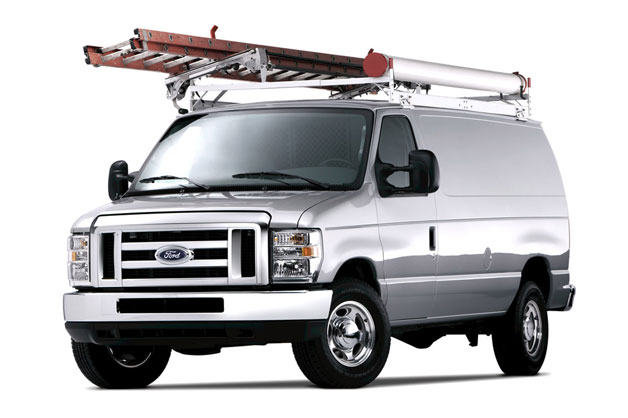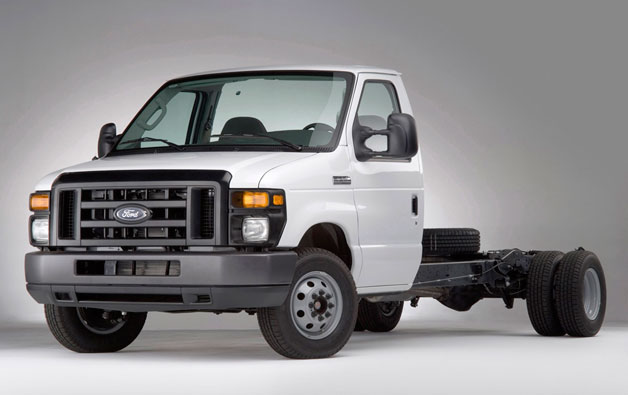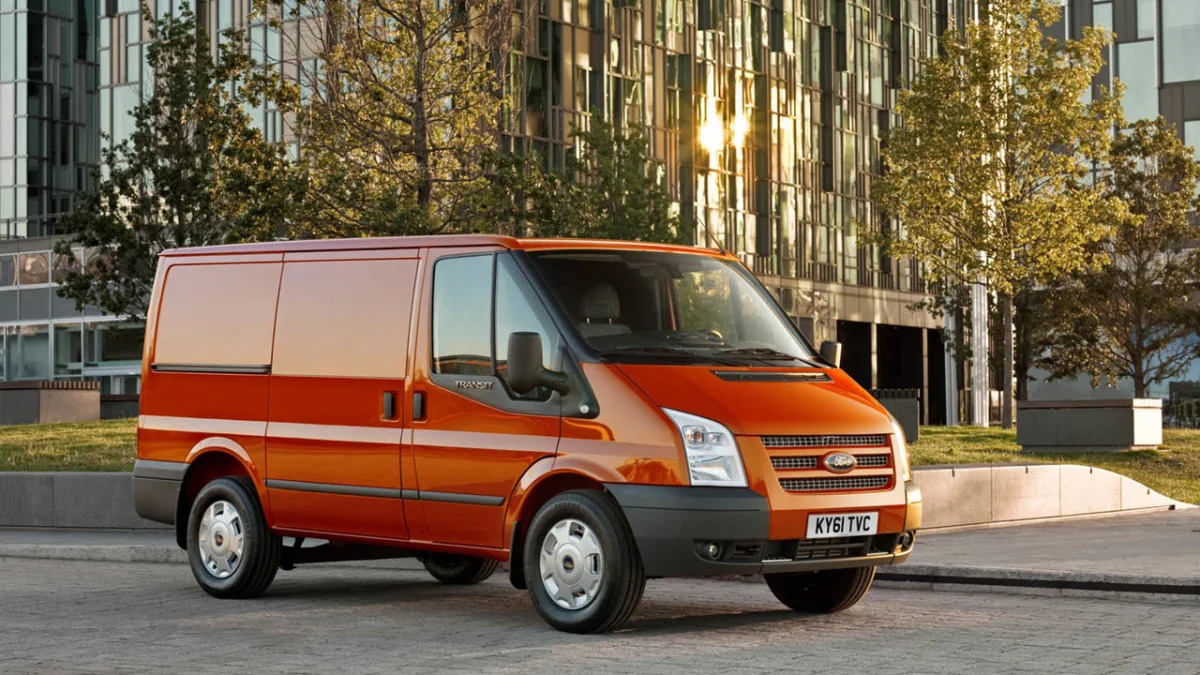It is not often that an automaker decides to dump a best-selling vehicle line, one that's dominated its segment for decades. But Ford's commercial vehicle team is doing it not once, but twice. Ford had been phasing out its Panther platform for a good five years before it finally ceased production of its Crown Victoria taxi, Police Interceptor and Lincoln Town Car livery offerings in September. Now the company is set to do similarly with its E-Series van, which will eventually be replaced by Ford's Transit, the venerable European equivalent. Ford divulged a few more details about its commercial vehicle plans at a press event in Dearborn yesterday.In a commercial market where "change" is a four-letter word, Ford has a lot of explaining to do.
When the final Panthers rolled off the assembly line in St. Thomas, Ontario, Canada, Ford was left with no direct replacement. Instead, the company plans to sell the compact Transit Connect van in the taxi market, upgraded Tauruses and Explorers as police cars, and a "Town Car" version of the Lincoln MKT crossover to livery operators. All things being equal, these are significantly better products than their Panther-based predecessors, yet in a commercial market where "change" is a four-letter word, Ford has a lot of explaining to do.

The company's transition from the E-Series to the Transit certainly seems simpler on the surface, as it's a model-for-model substitution, but that's not exactly the case. When it launches the North American Transit in 2013, Ford says the new van will be available in multiple body styles, with different roof heights and with multiple engine options, greatly expanding the choices available to its commercial customers. And those who just want to buy a plain, white E-Series will still be able to do so, as Ford will not be discontinuing the model, at least not initially.
"We have a transition plan," said Doug Scott, Ford Truck Group Marketing Manager, but he declined to specify how long Ford will continue to build the E-Series after the Transit goes on sale, saying only that selling both vehicles concurrently, "will give us enough time to prove out Transit and win [customers] over."Ford will not be discontinuing the E-Series, at least not initially.
Scott did say the plan to phase out the E-Series was not sales-dependent, as Ford clearly does not want the E-Series to linger on like the Panther cars did. But Ford will actually continue to build the E-Series in chassis and cutaway cab form at its Ohio Assembly facility in Avon Lake in suburban Cleveland. This plant will be devoted entirely to commercial chassis production, with Ford's Super Duty F-650 and F-750, and F-53 and F-59 models also being produced there. The F-53 is primarily a Class A motorhome chassis; the E-Series chassis is also popular for motorhomes.

While the E-Series has been the best-selling commercial van in the U.S. for 32 years with over 8 million sold, the Transit has been similarly successful in Europe, where it's a best-seller both on the continent and in the U.K. Total Transit production has topped 6 million units, and it's sold around the world in many different configurations. Unlike the E-Series, it's a unibody vehicle, but with the flexibility to be offered in front-, rear- or all-wheel-drive. In Europe it has primarily been available with turbo-diesel engines, although for the U.S., Ford will certainly offer it with a gasoline engine. We are told that Ford has yet to decide which of its North American engines will be fitted under the hood, but that anything is possible, even a V8.
Ford says the transition to Transit makes sense for customers because the Transit will offer a 25-percent improvement in fuel economy, thanks in part to a roughly 300-pound weight savings, but without any sacrifice in durability or capability. By switching to a global platform, Ford expects to save money while being able to offer more frequent product refreshes, while also being better able to cope with increasing regulatory expenses.<The Transit will offer a 25-percent improvement in fuel economy, thanks in part to a roughly 300-pound weight savings.
Discontinuing the Panther platform opened the doors to increased competition in those segments, including the Nissan NV200, which won New York City's "Taxi of Tomorrow" competition, and GM's rear-drive Chevrolet Caprice Police Patrol Vehicle. But Ford seems better poised to maintain its market share in vans. To that end, it has been testing various European Transits with its biggest fleet customers, including FedEx and Frito Lay, getting feedback to make sure its North American Transit hits the mark when it goes on sale in 2013.









Sign in to post
Please sign in to leave a comment.
Continue